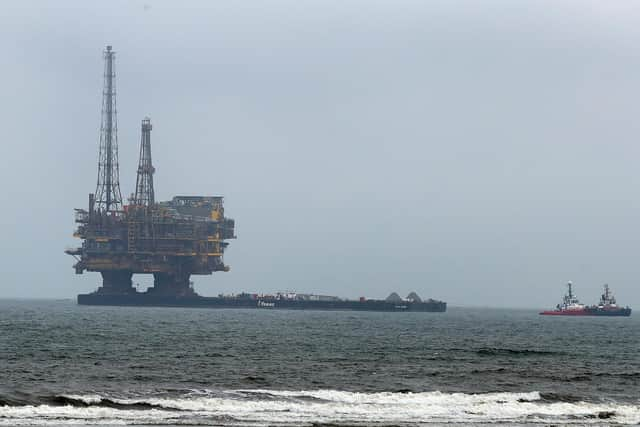Nicola Sturgeon says Scotland must move faster away from oil as new energy strategy due to be unveiled
Speaking ahead of today’s launch of the Scottish Government’s new 25-year vision for the energy sector, the First Minister said: “The imperative is clear. In this decade we must set Scotland on the path to an energy system that meets the challenge of becoming a net zero nation by 2045, that supplies safe, secure and affordable energy for all and that generates economic opportunity through a just transition.”
Environmentalists have called for the new strategy to set a cut-off date for oil, gas and coal to help tackle climate change before it is too late.
Advertisement
Hide AdAdvertisement
Hide AdMary Church, head of campaigns for Friends of the Earth Scotland, said: “This is a crucial decade for action on the climate crisis, so ministers must ensure that the plan sets an end date for fossil fuels and commits to phasing out oil and gas.”
The demand comes following calls from Westminster’s environmental audit committee last week for the UK Government to set a stop date for oil and gas licensing.
The draft energy strategy, which was due to be released last spring, but was delayed due to “rapidly evolving global energy environment” and a hold-up in the UK Government’s strategy, is being published for consultation today.
It will set out policies on domestic production of energy, alongside a plan to reduce demand and build a resilient and secure future net zero energy system.
Scotland’s first Just Transition Plan – a route map of actions aimed at ensuring that citizens, workers and communities benefit as the energy sector changes – will also be unveiled.


It comes after the hottest year on record in Scotland and the UK, driven by climate change, and a recent warning from the United Nations the world is on course for a catastrophic 2.8C of warming by the end of this century – far in excess of 1.5C Paris Agreement target and well above the 2C ‘danger’ level for catastrophic and irreversible impacts.
The strategy, which updates plans set out in 2017, will shape the next 25 years of energy production in Scotland.
Ms Sturgeon said: “The current energy crisis has demonstrated how vulnerable our energy system is to international price shocks, while laying bare the need for structural reform to ensure affordability for consumers.”
Advertisement
Hide AdAdvertisement
Hide AdShe said the strategy would include an independent assessment of the future of the North Sea and show there is “a huge environmental and economic opportunity to be seized” as dependence on oil and gas is cut.
“Scotland is already at the forefront of the clean energy transition and our green jobs revolution is underway,” she added.
"By continuing to make the most of our vast renewable energy resource, we can deliver a net zero energy system that also delivers a net gain in jobs within Scotland’s energy production sector.”
Green energy businesses have expressed hopes the strategy will remove obstacles to development.
Claire Mack, chief executive of industry body Scottish Renewables, said: “We expect to see a holistic vision with commitments on green power, heat and transport, addressing the many barriers which still stand in the way of renewable energy’s vital growth.”
Comments
Want to join the conversation? Please or to comment on this article.